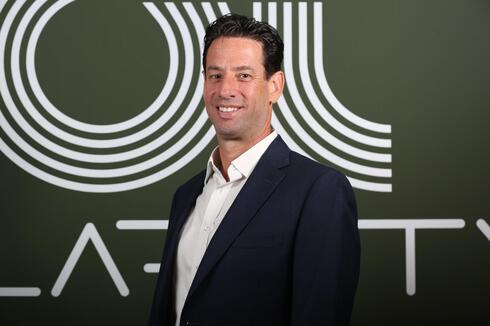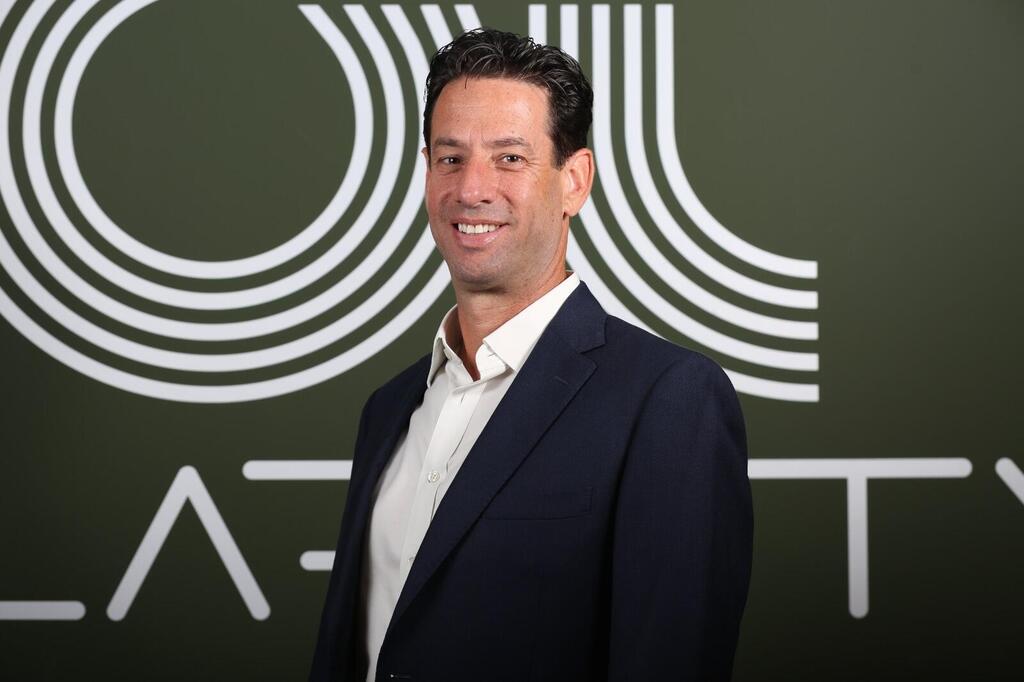
ISRAEL AT WAR
Claroty CEO copes with loss: Wife's mother murdered by Hamas, soldier son injured
Yaniv Vardi, CEO of the cyber company Claroty, discusses his personal losses from Hamas’ October 7 massacre, and managing his company during wartime.
At around 5pm on October 7, Yaniv Vardi, CEO of the cybersecurity company Claroty, received a call from a friend from the village of Netiv HaAsara, informing him that his mother-in-law had been murdered by Hamas terrorists. She was found shot dead on the floor of her house after leaving the safe room to warn her husband's daughter about the terrorists and to look for her dogs. Vardi informed his wife, Dana, of her mother’s death and shortly afterwards their son, Idan, an IDF soldier, called from a helicopter, telling him that he was injured and they could visit him at the hospital.
"Within fifteen minutes we went from finding out that Dana's mother was murdered to finding out that Idan was injured. We were more concerned about the psychological toll on him because they fought for eight hours, about twenty soldiers against over a hundred terrorists, and he lost many friends. It was a serious battle with a lot of RPGs and grenades thrown at them, most of them without vests and helmets. We always criticized this generation, which is a generation of mobile phones and screens, and questioned their values. But we saw their values very well that Saturday, from their commitment to defense to the support they give to one another today," he said.
Vardi received the news during a meeting with Claroty’s management team in Israel. "We were talking about what to do in light of the news, and then I was supposed to attend the global management meeting when I received the message about Dana’s mother. I simply said that I wasn’t going to the meeting, that the Israeli management would communicate what we decided and move forward," he explained.
At that point, Vardi says that he shifted to autopilot mode. "If I think about it in retrospect, there were a few more things at play: firstly the desire to show that we are also winning on the home front, that we are strong financially and have continuity. Second, the company is global, we have more than 500 people, about 200 of them in Israel.
“Two days later, we had the biggest event of the year in Miami. An event with hundreds of senior participants ranging from government officials to information security managers to giant corporations. We had to decide whether we were going to do it. The European and American teams said there was no way we would hold the event if the Israeli team couldn't attend. I said that we would hold the event and make it the best that we could."
Vardi was supposed to open the event, Nexus, in Miami on October 10, but instead, the American partners stepped in for him and the other Israeli employees. "I received thousands of messages and WhatsApp photos; they said the event really excited them and us. Amid the war here, it was very moving to see their commitment. We wanted to demonstrate that we are persevering in a very determined and strong way," he said. "This is an event with 300 CEOs and executives from the largest companies in the world - security managers from Pfizer, BMW, Fortune 100 companies, and we had to manage it."
How do you continue to manage the company under such circumstances?
"On Sunday, we announced that we are switching to work from home.There are dozens of employees in reserves; we are a cybersecurity company, so most of the employees were in intelligence units. We support every employee and their needs. Although there are many employees in reserves, we still provide 100% real-time response to customers - we just work harder and we work more, I think out of a sense of duty to protect critical infrastructure, especially during war. We’ve always understood the importance of defending water, food, and energy infrastructure, but during a war, it is even more important, and people really want to feel that they are helping in whatever way they can.
“Managers made contact with employees to ensure everyone was okay, and after some time, we held a conference call with the employees in Israel. Following that, we held a company-wide call that was very emotional. It's a global company with hundreds of people who are not from Israel. Usually, I start the conversation, but in that call they asked me to wait and shared a video with everyone expressing a few words of support, some in tears. It was at their initiative," he said.
How do you, as someone who is living through this terrible news and anxiety, continue to manage?
"I strongly believe there are two types of actions in crises like these. The first type is beyond our control - I can’t control what will happen tomorrow or next week. We consume a lot of news, and it just causes frustration and sadness. The second type is what is within your control – talking to people you love, exercising, volunteering, or working. The more that we engage in activities that are within our control, the better state we’ll be in emotionally.
“It’s not just me, I feel that all of us in the company are in a better state when we are active. There's a genuine sense of purpose here. Every year, the number of cyber attacks increases by 100%, and critical infrastructure is most affected. For example, in one of the attacks, there was an attempt to change the chemical composition of water in water infrastructure, which could potentially harm people. So, the sense of purpose is real, and I think when people engage in something important, it helps to cope. Being busy at work is also constructive, and you’re not consuming news constantly which helps. I won't lie; it was hard for me to stay active because every conversation I had was mainly answering questions like 'How are you?' 'How is your son?' 'What's happening there?'"
Claroty is a cybersecurity company founded in 2015 by Team8 in Tel Aviv. It employs 480 people and has raised $635 million to date. Vardi was appointed CEO in July 2020 after co-founding Sparta Systems and serving as the CEO of Israeli startup Panoramic Power, which was acquired by British energy giant Centrica.
These days, Vardi believes that everyone needs to do better advocacy. "As a country, we can do better at advocacy, but each one of us needs to do our part. We have some of the largest investors in the world who are getting involved. They rallied to help the wounded members of Idan’s unit as well as Netiv HaAsara. These are people who manage billions and have portfolio companies worldwide. They are influential and that's why it's very important to explain what is happening from the inside, and to give specific examples, even if they’re hard to hear. In the end, when you give a personal example of something that people can relate to, it's a story that gets passed on. They want to help, not just with money and donations; they are interested in helping with advocacy."
Do you have any insights from the recent weeks on crisis management?
"I’ve seen that communication is crucial. We have a bi-weekly call with Israeli management. In addition, it's important to engage in activities that you can control - exercise, work – that is also very important. Finally, I think part of our victory is our resilience and continuity, also economically.
“One must not get confused. There is a period of grace now for a few weeks; there is a period where customers will forgive a problem here or there, but we must continue to provide 100% service to customers and partners in real-time. I still think that companies and customers are very empathetic, but in the end, we need to endure.
“Also, they say there are no investments now, but that's not true. Investments continue, especially if they believe in the power of Israeli innovation. There are good opportunities even during wartime. So yes, we need to continue pushing forward because we shouldn't hide behind what is happening but, on the contrary, show our resilience."














